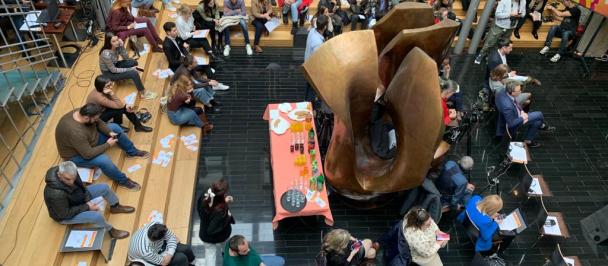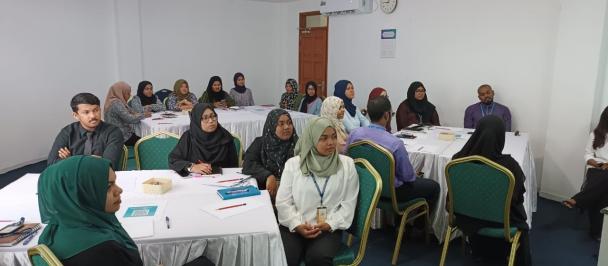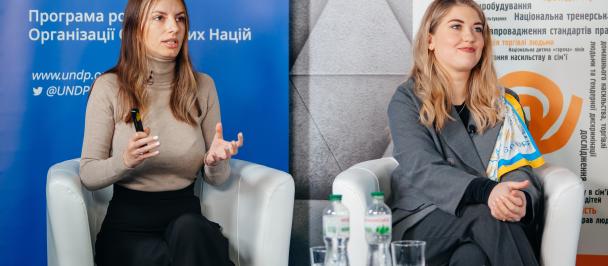Zimbabwe UNDP Country Office Team, Oranging up in a round table discussion on preventing and responding to gender-based violence
UNiTE! Invest to Prevent Violence against Women & Girls
December 22, 2023
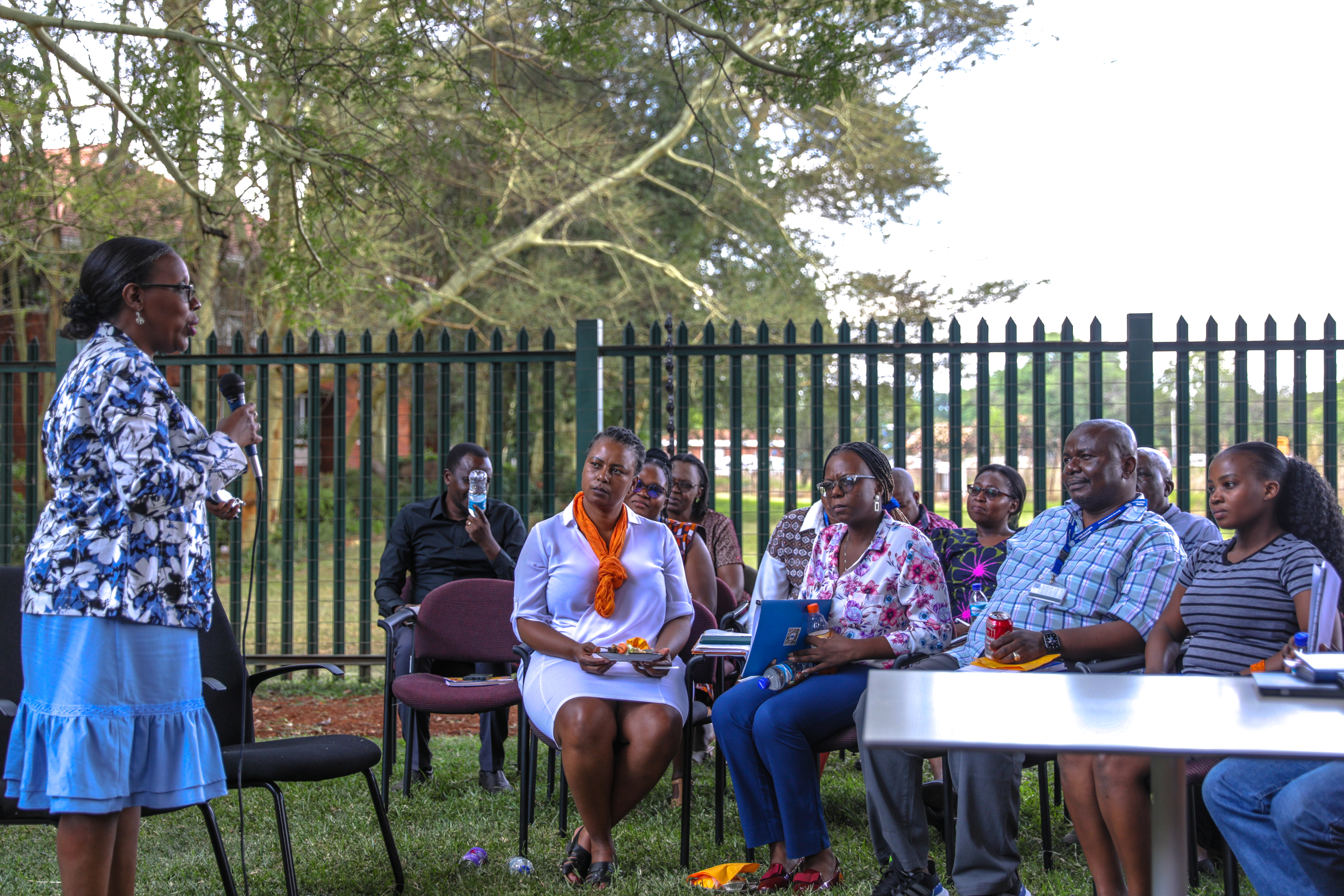
Carine Yangeyenge - UNDP Deputy Resident Representative for Operations emphasizing the need to speak up and tacking action against GBV.
Taking a moment outside the December busyness to sit outside and discuss issues that matter to us. Normally our focus is on our partners and beneficiaries, but as the United Nations Development Programme Zimbabwe (UNDP) just for a day, we decided to focus on us.
As advocates, we rarely consider or talk about how Gender Based Violence (GBV) impacts us, but we are also survivors and victims, and like everyone else, we need to speak up and receive the support that we need. The talks were frank, animated, and laid down the foundation for future debates. There were fewer answers than there were questions, however, the group did decide that we don't have to answer every question in a single day. Rather, we should continue the discussion in the numerous upcoming sessions; the more we discuss it, the more ingrained the idea gets.
Mr. Manyame, the UN Clinic Counsellor, gave a presentation on the frequency of GBV, its causes, and various approaches and approaches to handling cases of GBV. In addition to reporting and seeking medical attention whenever their partners exhibit aggressive behaviour, staff members were also urged to think about confiding in a trusted person. Employees were advised to report any instances of abuse through the approved procedures and channels set up by the organization.
"Do we know what GBV is? There was no clear response to the question, some acknowledged knowing while others do not. Majority of individuals only consider sexual and physical abuse, however GBV extends beyond these realms. It encompasses both spoken and occasionally silent words. Gender-based violence (GBV) was defined as violence against an individual motivated by their gender or violence that disproportionately affects individuals of a certain gender.
It was reiterated that that GBV impacts the victim and others around him/her in a variety of ways and goes beyond simple physical violence. One speaker indicated that non-physical violence affects the victim more than physical violence, although its GBV in all its manifestations, “the power of the abuser is in silence; therefore, the encouragement was to speak up against GBV.”
When you have sisters, at times you are called in the middle of the night to come and address a case of GBV between your sister and her husband. This was said to be common for staff, but the question was, what should we then do when we witness a case of GBV happening in the office and beyond. How does one get involved and avoid being a bystander in cases of GBV?
The internal reporting procedures in place were discussed, staff was reminded to utilize the Protection from Sexual Exploitation, Abuse and Harassment (PSEAH) champions in the workplace. With the mindset that “it takes a village to protect each other against GBV,”
The need to speak up and act against GBV was further emphasized by our national belief that "it takes a village to protect each other against GBV." Employees reminded one another of their duty and responsibility to foster an environment that allows both men and women to participate and contribute equally.
Services providers are not fully trained and sensitized to effectively handle and address cases where men are victims or survivors of GBV. Do we have safe shelters for men, and are men prioritized in the discussions on GBV discussions? Alternatively, as said, men are acknowledged as heroes in the fight against GBV but are hardly ever seen as survivors or victims. Although statistics have proven that men are also victims, violence against women and girls remains the greater issue that needs to be kept in mind.
The emphasis was clear that in addition to speaking up and acting against GBV, men and women should prioritize accessing the necessary support and rehabilitation services they require when they are victimized. Men experience challenges in reporting GBV incidents, getting help, and reintegrating into the community or workplace following GBV experiences and these issues need to be addressed.
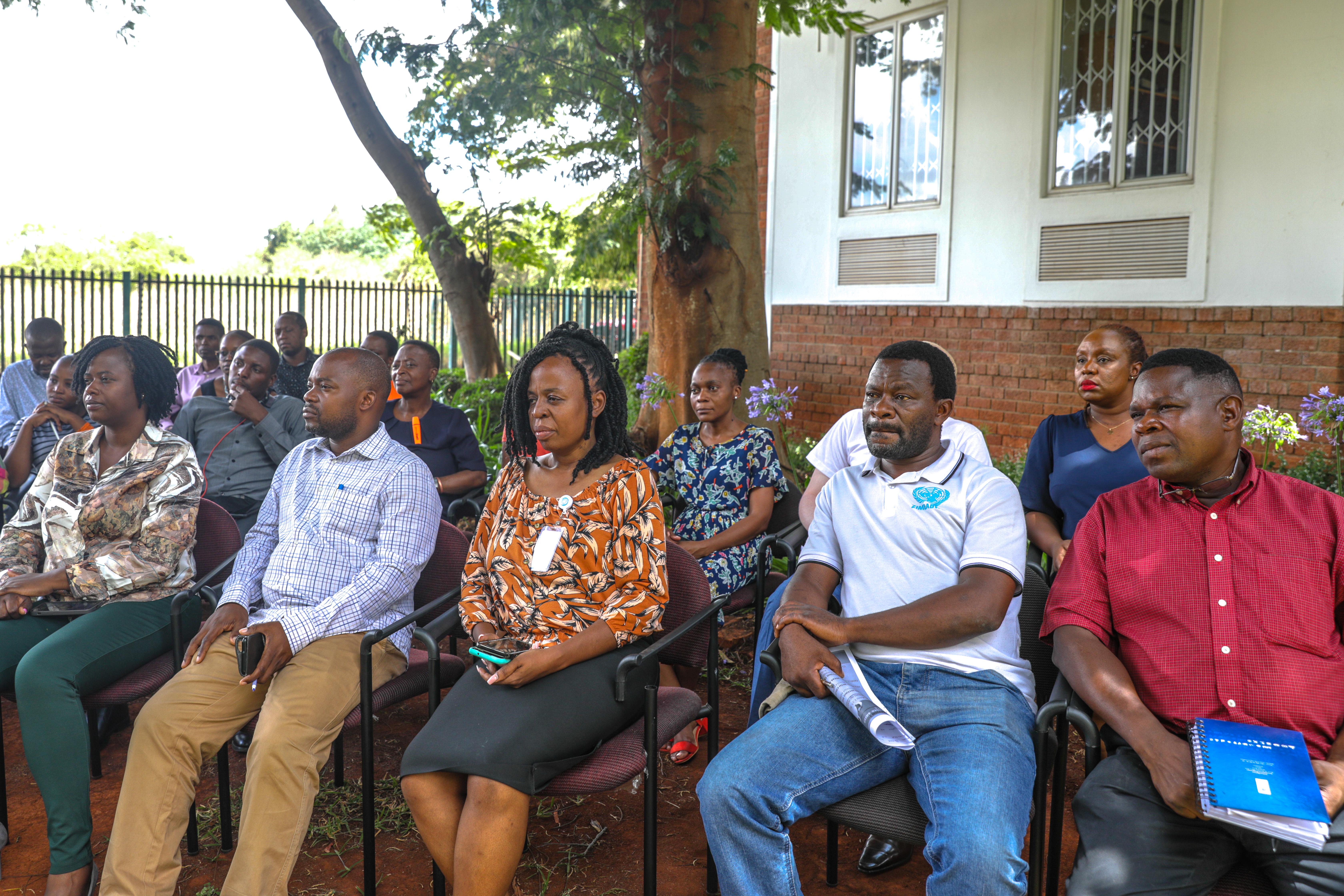
Carine Yengayenge, UNDP Deputy Resident Representative for Operations extended her gratitude to staff members who participated in the roundtable, reiterating the role that every staff member must play in addressing any form of violence within and beyond the organization. She stated that numerous concerns and suggestions made by employees have been noted by senior management, and these matters will be addressed. She requested that the PSEAH team and champions start the preparations for the roundtable conversations that will build on today's topic at the end of the next quarter.
Although most people experience verbal, emotional, and financial abuse, these incidents are rarely reported since the wounds left by physical and sexual assault are more obvious to both experts and the public. The staff asked that these roundtable talks be scheduled regularly rather than just once.
Orange reflects brightness, and hope remains for all men and women who have experienced and are experiencing GBV. Let’s continue to stand up, speak up, and UNiTE to end GBV. We, as the UNDP Zimbabwe Country Office family, are prepared and committed, and we call on everyone to join in!

 Locations
Locations